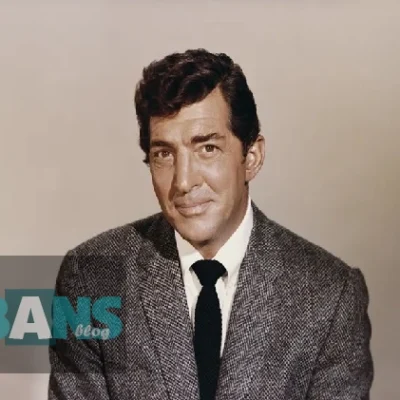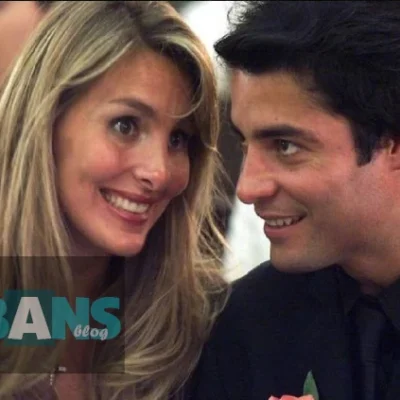Caterina Fake: Tech Pioneer Who Changed Photography
Surprisingly, the story of Caterina Fake isn’t just about creating Flickr, one of the internet’s first major photo-sharing platforms. Actually, it’s a tale of how one woman’s creative vision transformed the way we share our lives through pictures online. Back in 2004, when social media was barely a thing, Fake saw the future of digital connection through a different lens. She believed that photos could bring people together in ways that words alone couldn’t. Today, billions of photos are shared online every day, and much of that culture started with her innovative thinking. Through her journey from a small tech startup to becoming one of Silicon Valley’s most respected entrepreneurs, Fake showed that sometimes the best ideas come from solving simple, everyday problems.
Quick Bio
| Category | Details |
|---|---|
| Full Name | Caterina Fake |
| Born | June 13, 1969 |
| Birthplace | Pittsburgh, Pennsylvania, USA |
| Education | Vassar College (BA in English Literature, 1991) |
| Known For | Co-founder of Flickr (2004) |
| Major Companies | • Flickr (Co-founder) • Hunch (Co-founder) • Yes VC (Co-founder) |
| Notable Exits | • Flickr to Yahoo! ($35M, 2005) • Hunch to eBay ($80M, 2011) |
| Current Role | Co-founder and Partner at Yes VC (2018-present) |
| Board Positions | • Sundance Institute • Public Goods • McSweeney’s Publishing |
| Notable Awards | • Time Magazine’s 100 Most Influential People • BusinessWeek’s Best Leaders |
| Languages | English, Italian |
Early Life and Education
Before the tech world knew her name, Caterina Fake grew up in Pittsburgh, Pennsylvania, during the 1970s and 1980s. Interestingly, her path to technology wasn’t straightforward at all. She studied English Literature at Vassar College, graduating in 1991. Yet, this background in humanities would later prove incredibly valuable in understanding how people connect and share stories online.
During college, Fake developed a deep interest in art and writing. Actually, these creative pursuits would later influence her approach to building technology platforms that emphasized human connection over mere utility.
The Birth of Flickr
Sometimes, the best innovations come from unexpected places. In 2002, Fake and her then-husband Stewart Butterfield were working on a completely different project – an online game called Game Neverending. While developing this game, they noticed something interesting: players were more excited about sharing photos than playing the actual game.
Quickly, Fake realized they had stumbled onto something bigger. In 2004, they pivoted their entire company to focus on photo sharing, and Flickr was born. Remarkably, this decision would change the internet forever.
Revolutionizing Photo Sharing
Before Flickr, sharing photos online was complicated and boring. Usually, you had to email them or use clunky websites that nobody liked. Fake’s platform changed all that by making it super easy and fun to share pictures.
Moreover, Fake introduced some groundbreaking features that we now take for granted. For instance, she pioneered the use of tags for organizing photos, making it easier to find and categorize images. Also, Flickr was one of the first platforms to allow users to comment on photos and create communities around shared interests.
Yahoo Acquisition and Beyond
Eventually, Flickr’s success caught the attention of tech giant Yahoo. In 2005, Yahoo bought Flickr for around $35 million. Surprisingly, this wasn’t the end of Fake’s innovation journey – it was just the beginning.
After leaving Yahoo in 2008, Fake continued to shape the tech industry. She co-founded Hunch, a recommendation engine that helped users discover new things based on their interests. Later, eBay acquired Hunch for $80 million, proving once again that Fake had a knack for creating valuable technology solutions.
Current Ventures and Impact
Today, Fake continues to influence the tech world in meaningful ways. Actually, she’s focused on helping other entrepreneurs through Yes VC, a venture capital firm she co-founded. The firm specifically looks for companies that combine technology with human elements – something Fake has always been passionate about.
Furthermore, she serves on several boards and advises various startups. Interestingly, many of these companies share her vision of using technology to bring people together and create meaningful connections.
Leadership Style and Philosophy

Sometimes, leadership isn’t about being the loudest voice in the room. Fake’s approach to business reflects this perfectly. She believes in building products that serve real human needs rather than just chasing profits.
Moreover, her background in humanities has shaped her unique perspective on technology. Usually, she emphasizes the importance of understanding human behavior and relationships when developing new products or services.
Recognition and Awards
Throughout her career, Fake has received numerous accolades for her contributions to technology and entrepreneurship. Time Magazine named her one of the most influential people in the world. Also, she’s been recognized by various organizations for her innovative approach to business and technology.
Surprisingly, despite all these achievements, Fake remains focused on creating meaningful impact rather than collecting awards. She often speaks about the importance of using technology to solve real problems and improve people’s lives.
Legacy and Future Vision
Before Fake came along, photo sharing was just a technical function. Now, it’s a fundamental part of how we communicate and connect with each other. Her vision has influenced countless other platforms and entrepreneurs.
Furthermore, her approach to business – combining technology with human understanding – continues to inspire new generations of innovators. Actually, many modern social platforms can trace their DNA back to the principles Fake established with Flickr.
| Key Achievements | Year | Impact |
|---|---|---|
| Founded Flickr | 2004 | Revolutionized online photo sharing |
| Yahoo Acquisition | 2005 | $35 million deal |
| Founded Hunch | 2009 | Pioneered personalized recommendations |
| eBay Acquisition | 2011 | $80 million deal |
| Founded Yes VC | 2018 | Supporting next-gen entrepreneurs |
Looking Ahead
Today, as technology continues to evolve, Fake’s influence remains strong. She consistently advocates for responsible innovation that puts human needs first. Moreover, her current work with Yes VC suggests she’s not done shaping the future of technology.
Interestingly, many of the challenges she identified early in her career – like the need for meaningful online connections – are still relevant today. Through her continued work and influence, Fake helps ensure that technology serves people, not the other way around.
This in-depth profile of Caterina Fake was carefully researched and written by the team at UrbansBlog, your trusted source for inspiring stories about tech innovators and entrepreneurs. For more profiles of groundbreaking tech leaders, explore our extensive collection at UrbansBlog.





No Comment! Be the first one.